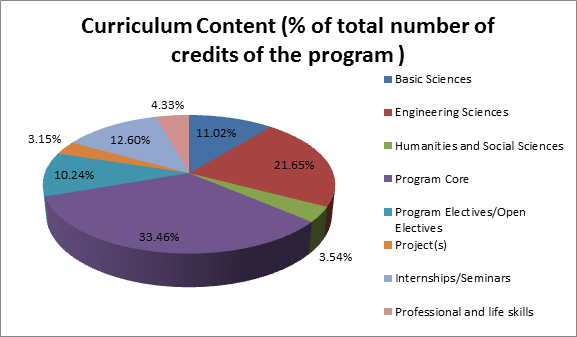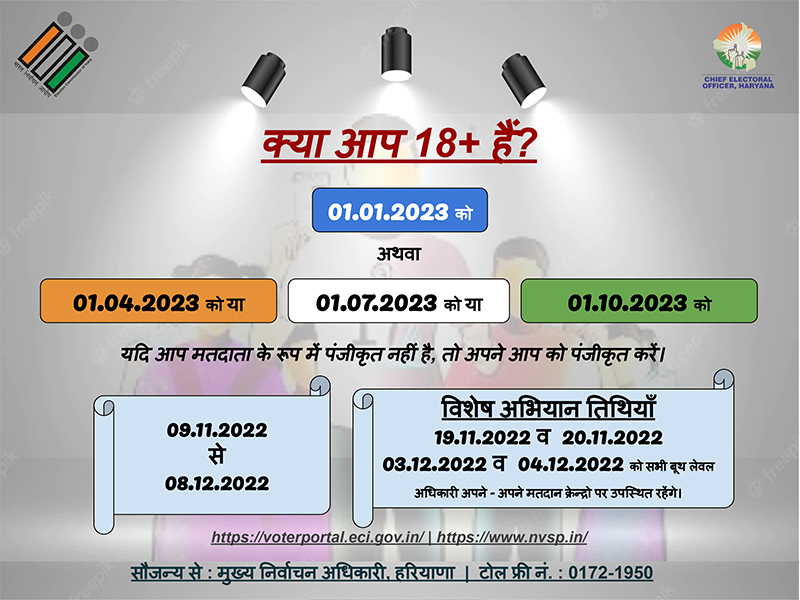B.Tech – Computer Science and Engineering – MRIIRS
Under this programme, the students can get the B.Tech (Hons.) in Computer Science & Engineering with specializations in Cloud Computing / Gaming Technology by earning additional 18-20 credits in the given particular domain as per provision prescribed by the AICTE. At MRIIRS, the courses under the said domain of Cloud Computing shall be offered in association with Microsoft.
| Duration | 4 Yrs |
| Intake | 150 |
| Credits | 160 |
| COURSE FEES (Per annum) for Indian Nationals in Rupees | 1,91,500 |
| COURSE FEES (Per annum) in US $ For PIO/NRI Students | US $ 5000 |
| Criteria for Preparation of Merit list |
Merit preparation / short listing of candidates shall be on the basis of score in Pearson/JEE Mains 2022/ SAT / MRNAT 2022 /XII Qualifying Examination |
| Eligibility Criteria |
Pass in 10+2 examination with at least 55% marks in aggregate in 5 subjects and eligibility shall be determined on the basis of percentage of aggregate marks in i. English, Physics & Mathematics and ii. One subject out of Chemistry, Computer Science, Biology or Biotechnology iii. One subject with the highest score out of the remaining subjects |
Note: Manav Rachna now accepts Pearson Test Score for admission
*Accredited by National Board of Accreditation (NBA)
Note: Under this programme, the eligible students shall have a provision/possibility to proceed to Purdue University North West (PUNW) USA in 2nd year or in 3rd year directly with transfer of credits of all courses/subjects studied at MRIIRS as per mapping of the courses and completes rest of their programme of B.Tech there at (PUNW) with award of degree of PUNW, USA.
- B.Tech CSE(Hons) with Specialization in Software Engineering and Agile Computing
- B.Tech CSE(Hons) with Specialization in Full Stack Development
Program Structure
Components of the Curriculum for batch 2013-17
| Course Component | Curriculum Content (% of total number of credits of the program ) | Total number of Contact Hours | Total number of credits | |||
| L | T | P | Total | |||
| Basic Sciences | 11.02% | 20 | 4 | 4 | 28 | 28 |
| Engineering Sciences | 21.65% | 27 | 7 | 21 | 55 | 55 |
| Humanities and Social Sciences | 3.54% | 9 | 0 | 0 | 9 | 9 |
| Program Core | 33.46% | 51 | 8 | 26 | 85 | 85 |
| Program Electives/Open Electives | 10.24% | 21 | 3 | 2 | 26 | 26 |
| Project(s) | 3.15% | 0 | 0 | 8 | 8 | 8 |
| Internships/Seminars | 12.60% | 0 | 2 | 0 | 2 | 32 |
| Professional and life skills | 4.33% | 11 | 0 | 0 | 11 | 11 |
| Total number of Credits | 254 | |||||
Components of the Curriculum
Program Educational Outcome (PEOs)
The Department of Computer Science and Engineering (CSE), in consultation with various stakeholders have formulated the Programme Educational Objectives (PEOs). These are broad statements describing the career and professional accomplishments of the graduates, that the programme is preparing them to achieve, subsequent to receiving the degree. The PEOs of the B.Tech. Programme in Computer Science and Engineering are as follows:
PEO-1: To prepare the graduates for a successful career in industry, consultancy, teaching and allied areas related to the subjects of Computer Science and Engineering.
PEO-2: To assimilate the graduates with team-spirit, leadership and problem-solving skills so they can lead organizations they join or initiate their own ventures.
PEO-3: To prepare and assist the graduates to be successful in higher education leading to Masters and Research programmes, thereby creating and disseminating knowledge through research activities in the theory and application of computing.
PEO-4: To groom the graduates as professional engineers with an understanding of professional and ethical responsibilities, enabling them to contribute effectively to the growth and development of a body of knowledge.
PEO-5: To instill the ability to analyze the requirements, understand the technical specifications and design innovative solutions by applying the principles of computing.
MAPPING OF MISSION AND PROGRAMME EDUCATIONAL OBJECTIVES (PEOs)
The department is committed to providing quality education to its students and has the vision to establish itself both at national and international levels. The department is moving forward through its well-defined mission which involves the requisite steps to make the vision a reality. The educational objectives of the program, have been defined keeping in view the various mission steps.
| PEO Statements | M1 | M2 | M3 | M4 |
| PEO-1: To prepare the graduates for a successful career in industry, consultancy, teaching and allied areas related to the subjects of Computer Science and Engineering. | 3 | 3 | 3 | 3 |
| PEO-2: To assimilate the graduates with team-spirit, leadership and problem-solving skills so they can lead organizations they join or initiate their own ventures. | 3 | 2 | 3 | 3 |
| PEO-3: To prepare and assist the graduates to be successful in higher education leading to Masters and Research programmes, thereby creating and disseminating knowledge through research activities in the theory and application of computing. | 3 | 3 | 3 | 2 |
| PEO-4: To groom the graduates as professional engineers with an understanding of professional and ethical responsibilities, enabling them to contribute effectively to the growth and development of a body of knowledge. | 3 | 2 | 3 | 3 |
| PEO-5: To instill the ability to analyze the requirements, understand the technical specifications and design innovative solutions by applying the principles of computing. | 3 | 3 | 2 | 2 |
Program Outcome (POs)
- Engineering knowledge: Apply the knowledge of mathematics, science, engineering fundamentals, and an engineering specialization to the solution of complex engineering problems.
- Problem analysis: Identify, formulate, review research literature, and analyze complex engineering problems reaching substantiated conclusions using first principles of mathematics, natural sciences, and engineering sciences.
- Design/development of solutions: Design solutions for complex engineering problems and design system components or processes that meet the specified needs with appropriate consideration for the public health and safety, and the cultural, societal, and environmental considerations.
- Conduct investigations of complex problems: Use research-based knowledge and research methods including design of experiments, analysis, and interpretation of data, and synthesis of the information to provide valid conclusions.
- Modern tool usage: Create, select, and apply appropriate techniques, resources, and modern engineering and IT tools including prediction and modeling to complex engineering activities with an understanding of the limitations.
- The engineer and society: Apply reasoning informed by the contextual knowledge to assess societal, health, safety, legal and cultural issues and the consequent responsibilities relevant to the professional engineering practice.
- Environment and sustainability: Understand the impact of professional engineering solutions in societal and environmental contexts, and demonstrate the knowledge of, and the need for sustainable development.
- Ethics: Apply ethical principles and commit to professional ethics and responsibilities and norms of the engineering practice.
- Individual and teamwork: Function effectively as an individual, and as a member or leader in diverse teams, and in multidisciplinary settings.
- Communication: Communicate effectively on complex engineering activities with the engineering community and with society at large, such as being able to comprehend and write effective reports and design documentation, make effective presentations, and give and receive clear instructions.
- Project management and finance: Demonstrate knowledge and understanding of the engineering and management principles and apply these to one’s own work, as a member and leader in a team, to manage projects and in multidisciplinary environments.
- Life-long learning: Recognize the need for, and have the preparation and ability to engage in independent and life-long learning in the broadest context of technological change.
Program Specific Outcome (PSOs)
- Legacy Software: Upgrade and maintain legacy software systems by using modern techniques, programming skills, and tools.
- Development of Software Systems: Develop, test and maintain software systems for business and other applications, that meet the automation needs of the society and industry.
- Research and Development: Cultivate the field of computing and its latest trends, to pursue teaching, research & development activities and to work effectively in a team.
B.Tech CSE(Hons) with Specialization in Software Engineering and Agile Computing
Credits: 180
The software development industry has dramatically altered in the previous two decades because of fierce industry competition, impatient clients, dynamic technology, and market techniques. As a result, the sector needs engineers with domain experience as well as project management methodologies. In light of this, the Department of Computer Science and Engineering, FET, MRIIRS has introduced the B.Tech. (Hons) Computer Science and Engineering with a Specialization in two verticals, namely Software Engineering and Agile Computing and Full Stack Development (FSD). A combination of engineering and management abilities is taught in this endeavor to prepare future Engineers for long-term work or entrepreneurship in the sector. Agile computing is the arrow in the quiver for such a fast-paced industry. There is no black-and-white template in Agile software development; instead, a solution is supplied on the spot based on the current situation and challenges. Students will be trained in the Agile software development technique, as well as traditional computer engineering courses. Students in this specialization will be trained in the Agile software development strategy, including the Twelve Practices of XP (Extreme Programming), Scrum Practices, Applying Scrum, and other advanced Agile technologies, in addition to traditional computer engineering coursework.
B.Tech CSE(Hons) with Specialization in Full Stack Development
Credits: 180
With the ubiquitous market for web-based applications for service and business, full-stack software engineers are in high demand in the sector. A full-stack developer is responsible for the design, database, clients, and system engineering of a website (or web application).
Full-stack developers are in huge demand because of their wide-ranging skills and extensive proficiency in web development. They can also handle various duties and increase the productivity of their teams. For a specific project and the needs of the customer, full-stack developers may work on an integral application stack that is mobile or a web stack.
Placement Opportunities
Excellent placements with over 90% of its eligible/ willing students placed in companies namely Microsoft, Infosys, TCS, Cognizant, Wipro, L&T Infotech, HCL, IBM, Hewitt, Tata Telecom, NIIT, Dell, Capital IQ, Vodafone, Airtel, Idea etc. With the introduction of specializations in B.Tech (CSE) Programme, placement opportunities for the students pass-out from the specialized programme will get further enhanced in a big way. In addition, placement opportunities are also available in organizations such as DRDO, ISRO, ONGC, NIC, BSNL, Armed Forces, IES, Civil Services, Banking, Health Sector, etc.
The introduction of specializations in M.Tech (CE) Programmes such as Computer Networking (CN) aims at exposing students to the current edge of research.
Many students opt for higher studies/research in India/Abroad. The programmes running in the Department also prepare the students to choose a career in research and development, which provides an excellent foundation for Ph.D. study.




